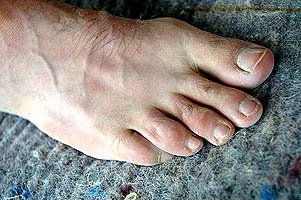Restorative Justice, as opposed to our current punitive justice system, emphasizes healing and repairing the damage done by crime, This involves all people impacted by crime--the victim, the offender and the community. The first principle of Restorative Justice is:
Justice requires that we work to restore those who have been injured.
Here is a
story of one woman's life a year after the murder of her son. Read it and you will see that no matter what the punishment, there is no healing involved in how we currently deal with crime. It is imperative that we (as loving, caring Christians) work to heal the damage done by crime.
A year on from that night in Walton Hospital, where she willed her son to survive but had to watch him slip away, she is still in shock. Gee cannot bring herself to go to McGoldrick Park and will do anything to avoid it.
She talks in half sentences and whispers, her eyes searching the room. They settle on the same spot - a photograph of her beaming son, the one reprinted countless times in newspapers and magazines - and she finds some kind of peace.
The article goes on to say:
She draws no consolation from the killers' convictions. Barton will serve at least 17 years and eight months for the murder of the promising A-level student while Taylor, who delivered the fatal blow, will serve at least 23 years and eight months."What is prison? They're not free to roam and repeat what they did. I don't know what life is like inside. But we're still living with our pain. What is justice? People say justice has been served. Your loved one is still gone and justice won't bring them back."
Where is the justice when victims are so torn apart by crime? Where is the justice when offenders are housed without serious attempts to rehabilitate? Where is the justice when our society just ignores all parties impacted by crime and goes on it's merry way?
 Holy Father,
Holy Father,













































